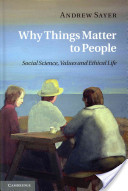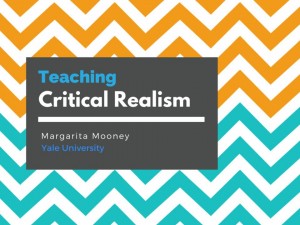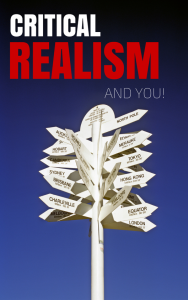 Recently, while reading Andrew Sayer’s book “Why Things Matter to People: Social Science, Values and Ethical Life,” I was captivated by the question of which of these two sentences sounds like a more accurate description of reality:
Recently, while reading Andrew Sayer’s book “Why Things Matter to People: Social Science, Values and Ethical Life,” I was captivated by the question of which of these two sentences sounds like a more accurate description of reality:
1) Thousands of people died in the Nazi concentration camps.
2) Thousands of people were systematically exterminated in Nazi concentration camps.
Most people probably pick #2. Just saying people died in Nazi concentration camps could imply they died a natural death, but saying people were systematically exterminated more accurately represents the Nazi goal of “purifying” the human race.

If I told you that I was so enthralled by Sayer’s book that I took it with me to a bar to watch game 7 of the National League Championship Series, would you believe me? If you believe me, do you think I’m really cool or really dorky? Just in case you just don’t think anybody is that dorky, I took a picture of me holding Sayer’s book in front of a giant screen TV where you can see the San Francisco Giants player Angel Pagan staring out of the screen.
In fact, I’ve been made fun of many times for taking philosophy books with me on airplanes, to the doctor’s office, and yes, even bars on occasion. I’m indebted to Martin Seligman, whose theories of positive psychology I’ve been writing about lately on BW&G, for helping me pinpoint why I take dense reading with me to so many places. When Seligman talks about engagement or flow (one of the 5 elements of human flourishing), he describes a sense of inner joy or fulfillment that comes from being totally absorbed in what you are. You see, when I’m really intellectually engaged, when I’ve found a new book full of great ideas that I love (like Sayer’s book), I get into the flow.
But wait a minute, how does being engaged, in the flow, go with watching the NLCS at a bar? Well, in addition to philosophy, beer and baseball are other things I enjoy. Once I’ve recognized that my intellectual work is something I truly enjoy, why can’t I mix it with other things I enjoy, like baseball? You know, baseball has a lot of breaks in it, there are breaks in between innings and in between pitches. That gives me plenty of time to read a few pages, take notes, reflect, watch another half inning, and go back to my book.
So what about the other people at the bar? No, they were not reading philosophy books. They were watching baseball and making small talk with the bartender and other patrons. Since I wholeheartedly agree with Seligman that relationships are another element of flourishing, I decided I could mix philosophy, beer, baseball and small talk at a bar with strangers. In fact, Sayer argues that three things that weaken social theory are a) rigid disciplinary boundaries that lock us into particular ways of thinking that go unchecked; b) too much emphasis on “observation” of society rather than full participation; and c) failure to check the accounts provided by social scientists with those of ordinary people.
So when inevitably, first the bartender and then the others around me said, “What’s that book you are reading?” I first said, “Well, I’m a sociologist and I write on a blog where I try to make abstract ideas interesting,” but that wasn’t a conversation starter. So then, rather than telling them the subject of the book, I just asked them the question I started this blog with: which of the two descriptions of the Nazi concentration camp is a more accurate picture of reality? Without hesitation, everyone picked #2, and they gave very good reasons for their choice.

What does this example have to do with my work as a sociologist? Sayer’s book also could be called “Philosophy of Social Science for Beginners.” Through all my years studying first psychology as an undergraduate and then sociology in graduate school, I’m still a beginner in philosophy of social science. I’ve read a few things from philosophy here and there, but until recently I’ve never sat down to study philosophy of social science and articulate why the things I study matter to me, and hence why they should matter to you.
A recently conversation with another sociology professor accurately expresses the state of our discipline. He said, “You know, I was taught that we are scientists, we don’t take stands, we are neutral about what we study. But when I read Sayer’s book I couldn’t find any holes in his argument.”
Sayer’s book is a thorough and persuasive argument that social scientists should not be afraid to use reasoned judgment about the social events they describe. In fact, not evaluating in some fashion the events social scientists describe would lead to statements like #1, statements that just don’t accurately describe reality.
Why do I care so much about Sayer’s argument that the goal of social science is to evaluate what we study? Most undergraduate students I teach seem convinced that they cannot evaluate or judge any person’s actions or any other culture’s ways of organizing society. So are human rights a universal standard by which to judge societies, I ask? Sure, my students answer, because human rights are universally recognized. When I then point out how many places in the world ignore (or wouldn’t systematically violate be a more accurate, albeit less neutral term?) basic human rights, my students think those leaders violating human rights would surely be persuaded to change their minds and respect human rights if we could all just engage in rational, fair dialogue. But what if you’ve tried dialogue and it doesn’t work and a genocide is occurring? Then what do you do?
College students are terribly idealistic about the world, which has its strengths and weaknesses. The strength is that they do have ideals about what the world should look like. The weakness is that they have no philosophical basis on which to reason through their ideals and values and evaluate the ideals and values of other people and other cultures. Addressing this mismatch is precisely Sayer’s objective. Not only are empirical observations subject to rational evaluation, values can also be subject to reasoned debate. It is not values that are dangerous to social science, but dogmatically held values. The solution is not to jettison values but to subject them to reasoned evaluation.
In our everyday lives, Sayer argues, we are evaluative beings. As one bar patron said to me, “It seems important that the title of the book is why things matter to people, not do they matter.” Yes, exactly! Sayer argues that we need to use reason and philosophy to articulate why things matter to us. Furthermore, if we want sociology to promote well-being, Sayer says, we have to think normatively.
Hence, the purpose of Sayer’s book is to rescue social science from the fact/value dichotomy that reigns in the profession and leaves so many undergraduates tongue-tied and unable to reason why their values just might be right, or in fact could be wrong. It’s my job not only to make abstract ideas less boring to students and readers of this blog, but to reflect on abstract ideas in order to make the world a better place.
Does this argument that facts and values are not so easy to separate make you uncomfortable? Join the club. Better yet, join the book club and read some philosophy of social science. Social science has long been divorced from philosophy and it’s only by reading and engaging with philosophy of social science that we can rescue ourselves form logical contradictions and the inability to express why things matter to us, or why anyone else should care about what matters to us.











